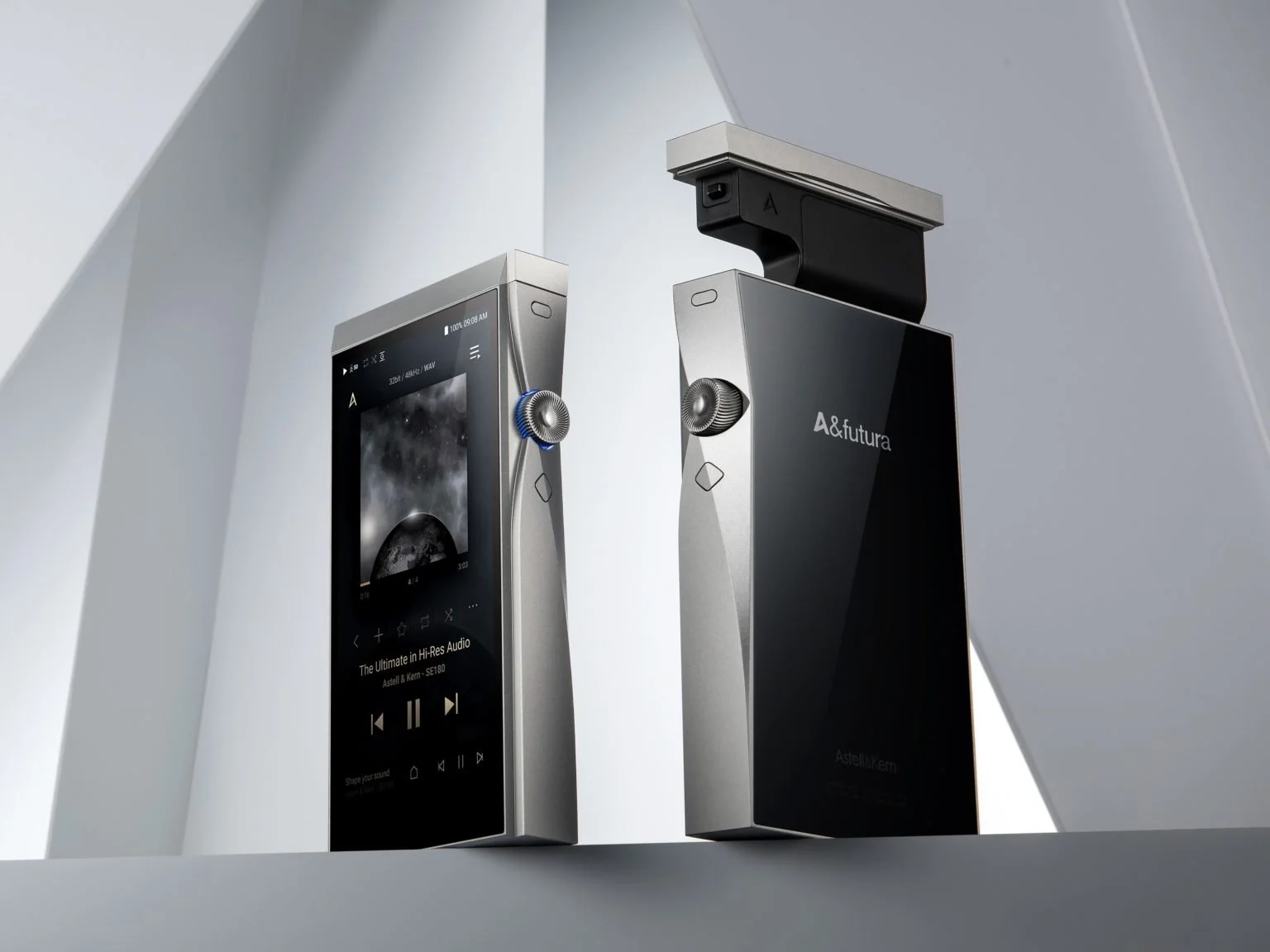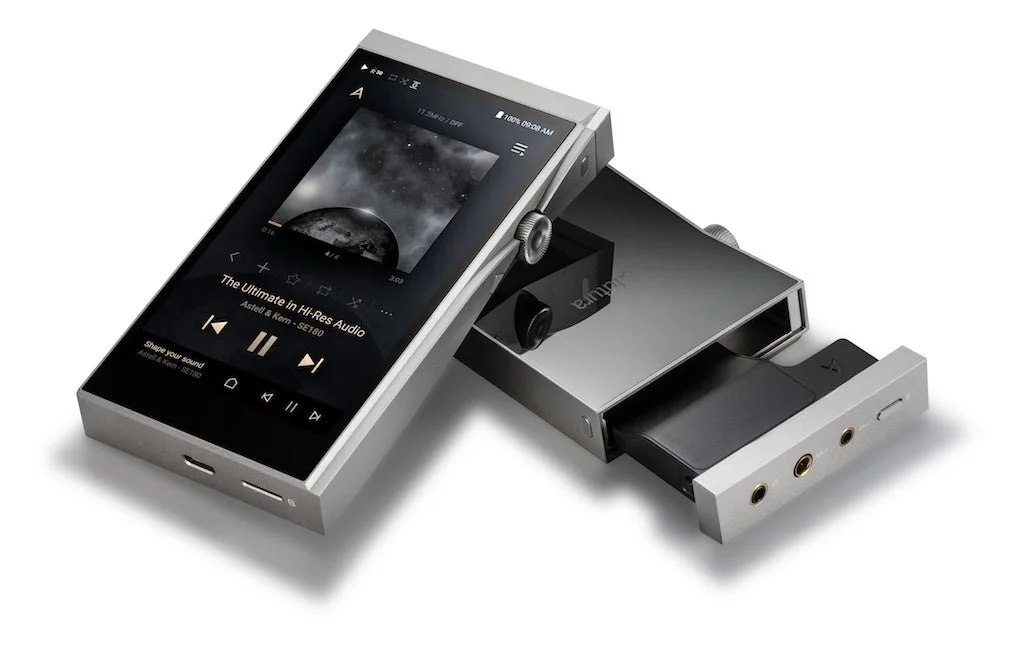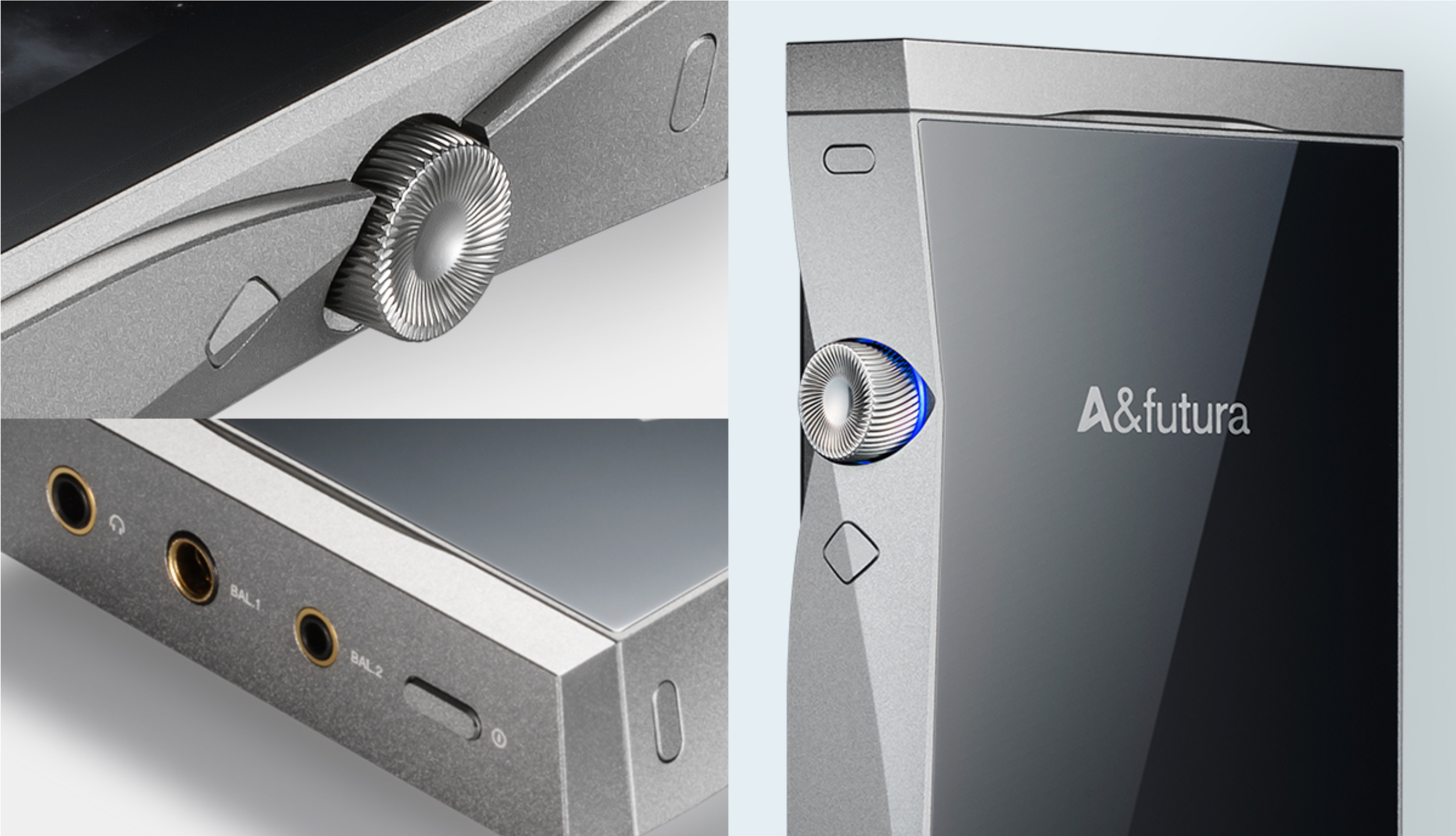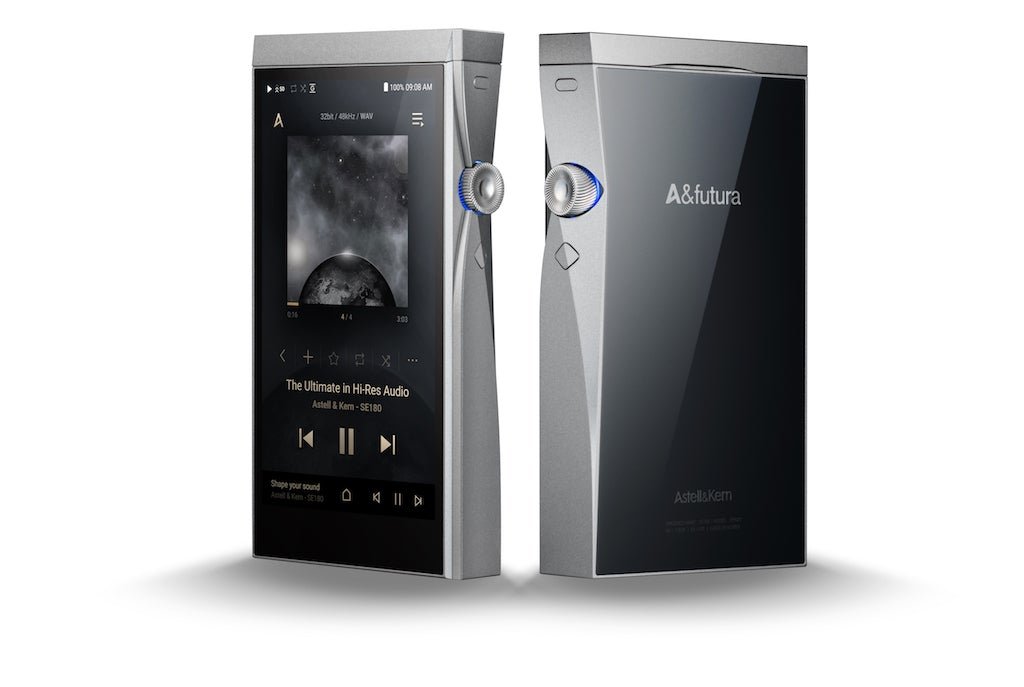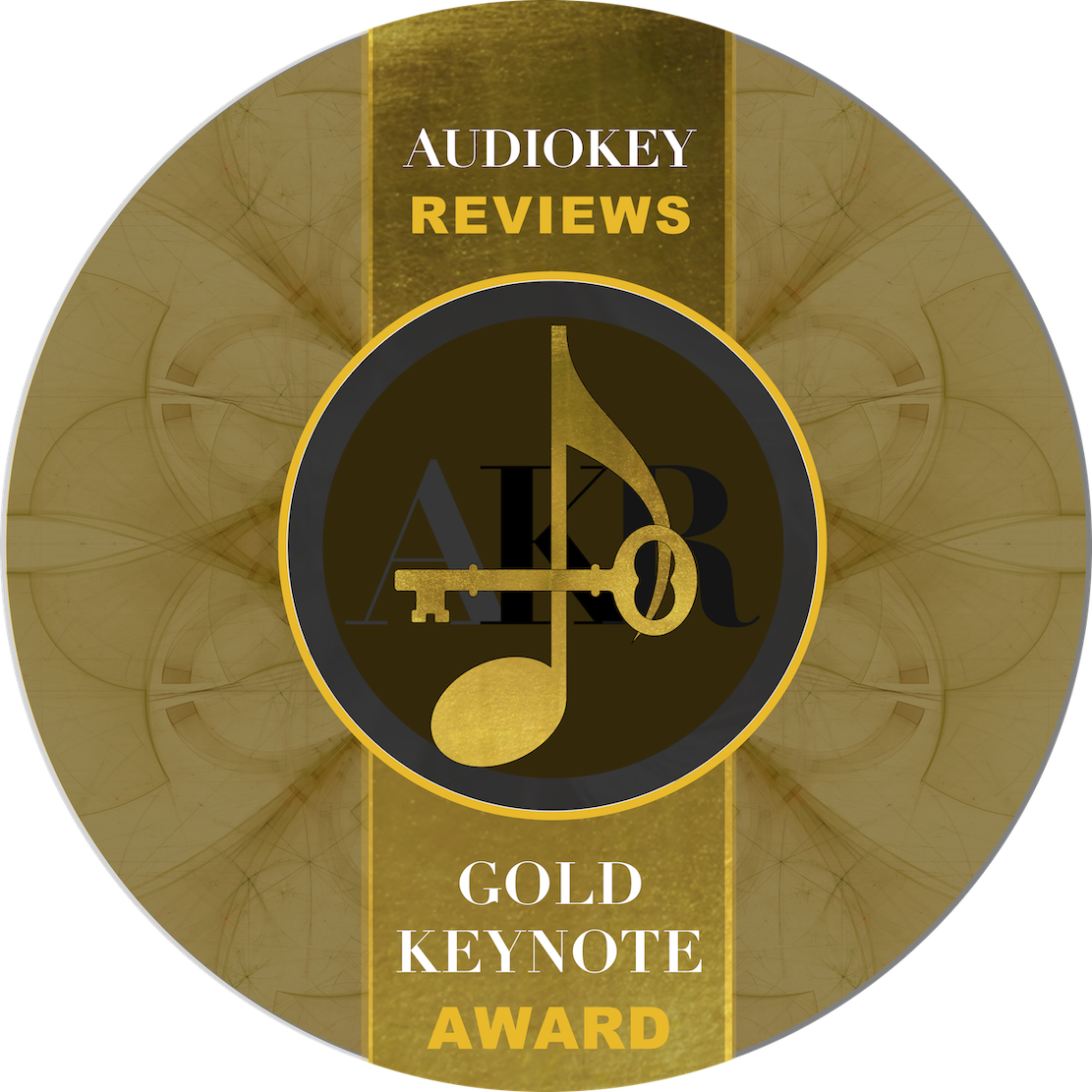ASTELL&KERN SE180 - REVIEW
The Cutting Edge of Digital Audio Processor (DAP) Playback!
The speed of technological progress is quite profound in this day and age in the audio industry. I am learning this across all manner of High Fidelity (HiFi) components, from IEMs to headphones to amplifiers to DACs to speakers. In this respect, and no doubt others, we truly live in very interesting times.
As I had mentioned in the review of the Astell&Kern SR25:
As one of the very first developers of the Digital Audio Player (DAP) Dreamus—Astell&Kern was ever-present in conversations, across websites, and certainly in the audiophile and headphone communities. The Astell&Kern brand had been known to me for quite some time, though I had not heard any of its products. I was always curious.
The reason that I had never heard any of its products was that, at the time, I was firmly entrenched in the HiFi Stereo—two channel (speakers)—world and could not ever anticipate not being so entrenched. It is said that everything changes, great and small, and so it does.
These past two years, I have embraced, though reluctantly at first, the Personal HiFi world. Soon after landing in this ‘alternative reality’, I discovered that which I had spent a lifetime searching for. It was the search for a very specific experience, an experience via an assemblage of components that would communicate to me fully the truth of a given recording. I had that experience when I journeyed into the world of electrostatic earspeakers (headphones) and electrostatic headphone amplifiers. But that was only the beginning.
Thereafter, I discovered other types of headphones—dynamic, planar magnetic—and IEMs and the attendant amplification that would bring me closer to the music in many unexpected ways. And then, there were Digital Audio Players (DAPs) that have pushed the technological process forward at near dizzying speeds. This, of course, brings me to the review of the Astell&Kern SE180 and yet another compelling experience and technological leap in the world of Personal HiFi.
REFRAIN: Unlike most reviews, this review will be non-sequential, as it will start with how the equipment actually sounds and not the process of physically “undressing” it and/or laying out its various accoutrement, specifications, etc. Think of this review then, as a non-linear movie—Memento, Kill Bill, Pulp Fiction, Terminator, The Eternal Sunshine of the Spotless Mind, etc—that, likewise, starts at the end and winds its way to the beginning.
The Sound
It was but a few notes before it was clear to me that the Astell&Kern SE180 was something new, different, and a good deal more than met the eye. It was as if the SE180 in those first few notes was masquerading as something other—a top-flight, high-end desktop system, a HiFi component—far far removed from its SR25 sibling as well as other DAPs.
The SE180 not only performed beautifully with all manner of IEMs, it also performed exceptionally well with topnotch headphones—Meze Empyrean Elite, Meze Empyrean, Meze LIRIC (review coming), Rosson Audio RAD-0, ZMF Véríté, and the ZMF Atticus. And to a one they were all incredibly well served. This in and of itself says a great deal about the SE180 as headphone impedances ranged from 32-Ohms to 300-Ohms and there was not even the slightest hiccup in driving any of them to optimal levels. Instead, there was a commanding sense of high fidelity reproduction every time. What does that mean?
It means a noise-free, black-quiet background and letting loose a transparency and resolution that easily uncovers detail, even the microscopic variety, from venues small and large, voluminous and the nearly volume-less to one’s ears. As though you were in the crowd, sitting, standing and able to hear all the nuances which together said ‘real’. The SE180 provides a delicate, nuanced musicality and a naturalness of tone and timbre, that beautifully parses instruments and their textures. If you’re one who listens with heart and soul but also needs resolution and detail, you will be embraced and well served by the music via the SE180.
Further, the SE180 resolves—makes abundantly clear— the natural sounds that cymbals, hi-hats, brushes across cymbals make that are very much different from the “scchccchchcc” or food “sizzling” away on the grill sounds that many components make. DAPs are not supposed to do this and certainly not at this price level. But then there was also the stratospheric, clear and silky reach of violins via the SE180 that many desktop systems/components and some HiFi components cannot match! Suffice to say, that this came as an absolute and complete shock to me! This is a DAP, after all!
And when one adds the SEM2 module, the short answer is that nearly everything—transparency, detail retrieval, soundstage, and even its sweet musicality— improves! Another quite unexpected development of which the SE180 was chock full. One does not expect a DAP to perform at this level.
I have now listened to a number of DAPs—Cayin N6II, iBasso DX220 (with various modules), Shanling M8, etc.—over the past couple of years. The Shanling M8, at the end of the day, stood above all the previous DAPs, in my subjective opinion of course. However, the distinction between the Astell&Kern SE180, with either module—SEM1, SEM2—and the Shanling M8 cedes a very clear victory in favor of the SE180, which betters the M8 in every perceivable way. No contest.
The SE180 performed beautifully across all genres—Blues, Choral, Classical, Classic Rock, EDM, Folk, Jazz, etc.—and there was always incredible transparency, copious inner detail—positioning and staging cues—and incredible engagement, which together brought more ‘life’ and engagement to track after track than any previous DAP. Again, one does not expect a DAP to perform at this level.
The Astell&Kern SE180’s volumetric cube—its soundstage—width, depth, height—is broad and deep, its background black-quiet, and its staging cues—layering, positioning, separation, microdynamics—truly impressive. The SE180 was at its finest, its most powerful, and its most musical with the SEM2 module, though even its SEM1 module handily dispatched the former king of the hill—Shanling M8—with outstanding transparency and resolution.
The Astell&Kern SE180 for the purposes of this review was partnered with the Vision Ears ELYSIUM and the Obravo EAMT-2C, IEMs, the Meze Empyrean Elite, Meze Empyrean, Meze LIRIC, Rosson Audio RAD-0, and ZMF Véríté, and the ZMF Atticus. Its 3.5mm and 4.4mm headphone outputs were used.
Bass
Eiji Oue’s “V. Infernal Dance of King Kashchey” (Stravinsky, Reference Recording) is a great ‘decider’ for me of a component’s bass response and bass resolution and its transient speed. The SE180’s bass force, its non-interference with the frequencies above it, its speed, resolution and decay were truly impressive. The thunder of “V. Infernal Dance of King Kashchey,” potent and resolving, reached deeply into the stygian depths of the Holy-Bass-Head-Grail via the Astell&Kern SE180. Christian McBride’s “Fat Bach and Greens” (Conversation with Christian, Mack Avenue Records) gave the interplay of upright bass and violin a dynamic, tight, wonderfully detailed rendering, with lickety-split transients, and with a reach out and touch texture. And Regina Carter’s violin, sweet as a caramel-coated, red-candy apple, soared into Treble+ region freed from its earthly bounds and any associated nasties—sibilance, glare, harshness. How is this $#@%*& possible with a DAP?!
Midrange
Andy Bey’s “Angel Eyes” (American Song, Savoy) cues and his baritone voice is immediate, rich, textured and engaging. Each word is clearly articulated, each instrument firmly positioned with clear separation at varying depths across the soundstage. And the music is incredibly engaging. I saw Andy Bey perform this song at Pearls in San Francisco, as I sat at most ten feet away, and it was incredible. The SE180 has captured a great deal of that performance and that experience. Joan Shelley’s “Teal” (Like the River Loves the Sea, Absolute Anthem Music (BMI)) sidles in poignant, heartfelt and it too engages immediately. The stage is wide with clear separation, placing instruments and singers in their relative air-suffused spaces via the Astell&Kern SE180. The SE180 is very communicative with both female and male vocals, whilst maintaining a transparency and resolution that should not be possible with a portable player, a DAP. Joan Shelley’s “Cycle” moves in with a smooth ease and plays out, though it was not intended for this review, but I play it through, as it is so inviting, so musical. And “When What It Is” sneaks through, I let it play as well.
Treble+
As I mentioned above, Branford Marsalis’ “Gloomy Sunday” (Eternal, Marsalis Music) from start to finish was rendered with a musicality and texture that no other DAP that I’ve reviewed, and certainly those returned unreviewed, has matched. That some desktop and HiFi systems have not matched either. One’s jaw did drop at this revelation. But then smiles followed the Eternal performance of the SE180 as it got down to business time and time again. For a triple check on Treble+ resolution I enlisted Patricia Barber’s “Invitation” (Nightclub, Premonition Records) and then Dave Brubeck’s “Take Five” (Time Out, Columbia-Legacy) and both were flawless. Never was there the slightest portent of the “schhhschcccchh” or food-sizzling-on-the-grill cymbals or some other annoying effect—there was just beautiful music.
The Wrappings and Accessories
The Astell&Kern SE180 comes in a small, nearly form-fitting, matte black, die-cut box. The company logo sits at its front face and the product designation at its lower left front face. True to form it is clean, graphically well designed, practical and efficient. Bling has been eschewed for understated, geometric elegance.
Opening the inner box reveals the moon-silver SE180 comfortably settled within a foam berth, atop a die-cut cardboard cutout. The cutout holds instructions, warranty card, and cables. Inside this SE180 package one finds:
SE180 Device x 1 (Main Body)
SEM1 x 1 (Module)
USB Type-C Cable x 1
Quick Start Guide x 1
Warranty Card x 1
microSD card slot cover x 2
Protective Film (Front x 2, Back x 2)
The overall design of the Astell&Kern SE180 gives a definite nod in the direction of a reduced materials/carbon footprint and a beautiful, understated graphic design implementation.
Design—Look and Feel
The Astell&Kern SE180 like its sibling the SR25 embraces an industrial design motif that brings together the angular lines of modern architecture and functional, modern art, in a beautiful, non-box-like component. Astell&Kern continues to distinguish itself from the balance of the competition in this way. The SE180 employs the moon-silver patina over its aluminum framework and finishes the design with a casual, understated, functional elegance, in which this reviewer finds no fault.
However, unlike its diminutive sibling the SR25, the SE180 is not bound for one’s pockets, unless those pockets are quite big. On the other hand, backpacks, purses, shoulder bags and lunch boxes will provide sufficient space for On-The-Go listening. Though overall listening time is but a fraction of its SR25 sibling’s 21 hours of playback. The SE180 is only capable of 10 hours of playback.
The leather case that accompanied the SE180 is subtle, and it frames the SE180 efficiently via a side flap that allows the DAP to slip in sideways making for an easier journey, by half, into the case than that of a top or bottom entry.
The Astell&Kern DAPs that we’ve reviewed to date have been exceptionally well designed, departing from the convention of a straight square or rectangular box and have thus distinguished themselves in this respect to be an easily recognizable brand. Again, bravo!
Functionality
The Astell&Kern SE180 utilizes a a Quad-Core CPU as aligned to a single ESS ES9038PRO DAC. The DAC samples:
PCM : 8kHz ~ 384kHz (8/16/24/32bits per Sample)
DSD Native: DSD64(1bit 2.8MHz), Stereo
DSD128(1bit 5.6MHz), Stereo
DSD256(1bit 11.2MHz), Stereo
The SE180’s Wi-Fi capabilities encompass 802.11 b/g/n (2.4GHz) and it supports Bluetooth codecs V4.2 (A2DP, AVRCP, aptXTM HD, LDAC). MQA playback services(Tidal Masters), Local files, External USB, MQA-CD(ripped).
The SE180’s utilizes a 5-inch WVGA (1920 x 1080) FDH touch-screen display. And it attends to the following formats: WAV, FLAC, WMA, MP3, OGG, APE, AAC, ALAC, AIFF, DFF, DSF, MQA.
The various headphone outputs/functions across its top face are an unbalanced out (3.5mm), a balanced out (2.5mm, only 4-pole supported), a balanced out (4.4mm, 5-pole supported), and an oblong On/Off button. On its right face is a volume wheel which also displays via LEDs the sampling rate of a current track in play, as displayed below.
Below the volume wheel is a single button which cycles through play/pause (1-push), forward (2-pushes), back (3-pushes)—in a rather efficient and space-saving fashion.
At either side towards the top of the SE180 are two oblong buttons, that when depressed allow the current DAC module to be pulled free from the SE180. It is a straightforward and effortless process to exchange DAC modules.
The Astell&Kern SE180 provides a wealth of downloadable apps, with Tidal, Qobuz, Amazon Music native to the SE180. The Astell&Kern’s “A” logo serves as the “Home” button, in the selfsame manner as on its website. Interaction is very intuitive and easily mastered.
A FEATURES list of the ASTELL & KERN SE180:
Some of the features of the SE180 are the following:
Interchangeable All-in-One Module
TERATON ALPHA Audio Technology from Astell&Kern
Next Generation Astell&Kern AMP Technology
Updated UI with Added Functions for Convenience
Quad-Core CPU
ESS ES9038PRO (Single DAC)
32bit/384kHz Bit-to-Bit Playback
5.0” 1920 x1080 Touch Display
Moon-Silver Aluminum Body
10 Hours of continuous playback
3D Glass-Backed Plate
USB—C for charging and data transfer
Fully authenticated MQA
The Specifications
Model: SE180
Body Color: Moon Silver
Body Material: Aluminum
Display: 5 inch WVGA (1920 x 1080) FDH
Supported Audio Formats: WAV, FLAC, WMA, MP3, OGG, APE, AAC, ALAC, AIFF, DFF, DSF, MQA MQA playback Services(Tidal Masters), Local files, External USB, MQA-CD(ripped)
Input: USB Type-C input (for PC & MAC)
Charging: 9V 1.67A/ 5V 2A
Wi-Fi: 802.11 b/g/n (2.4GHz)
Bluetooth: V5.0 (A2DP, AVRCP, Qualcomm, aptXTM HD, LDAC)
Dimensions: 3.03 ”(77 mm) [W] x 5.4 ”(137.2 mm) [H] x 0.78 ”(19.9mm) [D]
Weight: 9.88 oz (280 g)
Feature Enhancements: Firmware upgrades supported (OTA)
SAR: Body 10g SAR (W/Kg) 2.4 Ghz: 0.016
Wheel: LED Light (LED Indicator
For additional details and specifications please check HERE.
Conclusion
A DAP that travels and that does not leave one yearning for one’s home-based desktop or even one’s HiFi system! I would have thought the SE180 the Astell&Kern TOTL DAP when judged by its abilities, but it is not. Are those above it that good? Or does the employment of new technologies in the SE180—TERATON ALPHA Audio Technology and Astell&Kern’s Next Generation AMP Technology—push it beyond them?
I have sat before HiFi systems well into the six figures that could not resolve drums tapping, or cymbals, or the rise and fall of Hi-Hats, or brushes swept across cymbals, or the resultant air of each ‘transaction’. The resulting “sounds” were not music, but could have been mistaken, again, for food frying due to the schcchhhhss they produced. How does one say to the owner of such a system, “This sounds like garbage.” One does not. One simply writes about it in an anonymous fashion some time later.
The SE180 with both modules—SEM1 and SEM2—was incredible, though by preference, I lean, heavily, in the direction of the SEM2, which stood even above the performance of its sibling, in a more musical and analog-like fashion. Amazing.
Without further ado, we highly recommend the Astell&Kern SE180 and present it with our GOLDEN KEYNOTE Award. Truth be told, I had to think long and hard before doing this. Why? Because it is not even close to Astell&Kern’s own reigning TOTL DAPs in terms of price and generally, one imagines, their performance as well. One should leave space for the possibilities posed by the TOTLs of a given line. In the end, however, the SE180 fully deserves the award, regardless.
Pros: Transparency. Resolution, Musicality. Soundstage. Style. Relative Cost.
Cons: 10 hours of playback. It will not fit in one’s pocket. Heavy.
The Systems
1.
Meze Empyrean
Meze LIRIC
Rosson Audio RAD-0
ZMF Atticus
THE MUSIC
The Company
Astell&Kern
Retail: SE180 $1499
Retail: SEM2 Module $349
18-gil 5, Bangbaero
Seocho-Gu
Seoul, Korea, 06664
support@theinvixion.com
www.astellnkern.com
